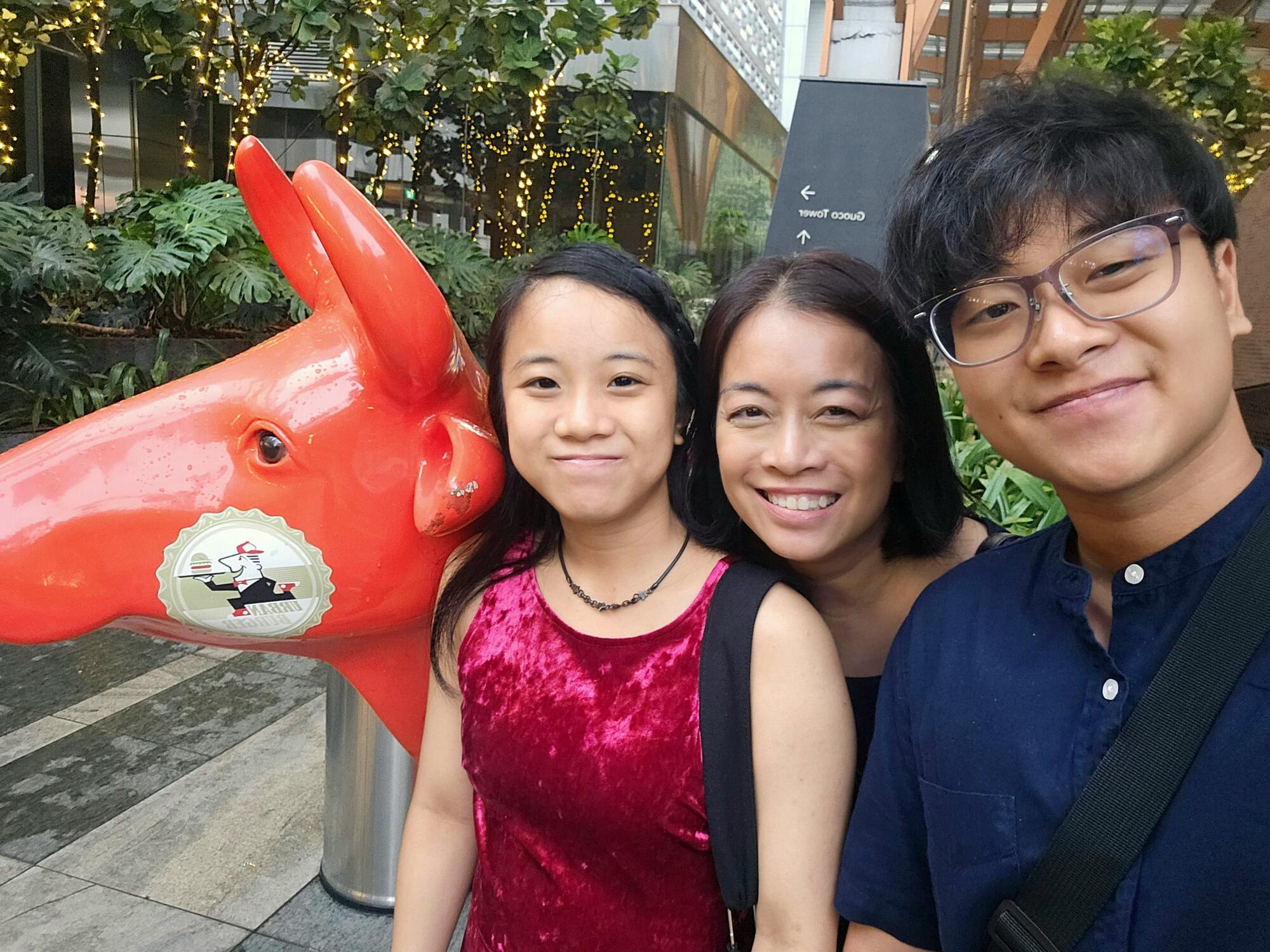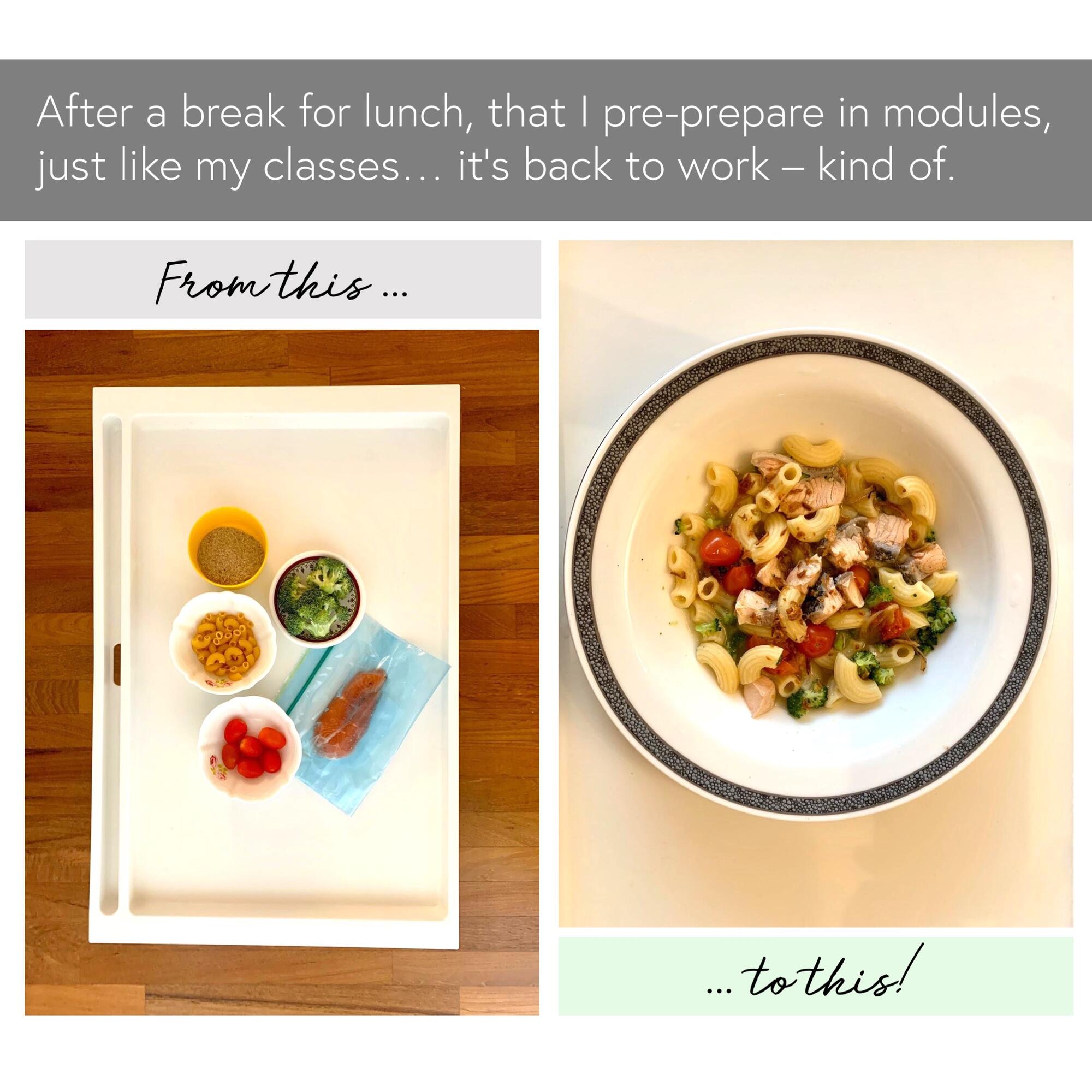When it was time for her daughter to choose her upper secondary school Humanities subjects, Ms Monica Lim’s advice went against the grain.
Lesley-Anne had to choose between Geography and Literature. Geography seemed to be the obvious choice as she was doing well in it, even topping the class at the subject in Secondary 2.
“All her friends told her, ‘Take Geography, obviously, you topped the class! It’ll be an easy A! Literature is very hard to score,’” recalls Ms Lim. It’s been over 10 years since the day, but Ms Lim can still remember how Lesley-Anne’s heart was torn. “She’s always loved Literature more than Geography, even if she did well in the latter. So, she came to me and asked what she should do.”
What advice did Ms Lim offer? “I told her, go with what you love,” says Ms Lim, “not because following your passion guarantees success, but because whether you do well or not, at least you would’ve enjoyed learning. If you choose to do something just for practical reasons, you probably would hate the process; and if it doesn’t work out, you’d feel even more disappointed.”
Lesley-Anne did choose Literature in the end, says Ms Lim, adding that “she enjoyed herself tremendously”. In Secondary 4, the teen topped the entire level in Literature which was icing on the cake. In the same year, she started co-writing the Danger Dan book series with Ms Lim. She went on to take Literature at A Level as an H3 subject (which is optional and more challenging), furthering her love for the subject.


Ms Lim and Lesley-Anne at book launches and signings of the Danger Dan series of books over the years.
Going with what she enjoys learning
Lesley-Anne, now 27 and working in a statutory board, went on to pen 14 books with her mother.
Now, when she gives talks at schools about book-writing, Lesley-Anne credits those Literature classes for giving her the confidence and skills to become an author. Ms Lim, who was also an education blogger, concedes that her advice to her daughter back then was risky – what if she fared poorly and regretted not taking up Geography instead?
“The choice was still hers, I didn’t force her. Yes, it was a risk, but as parents, we need to see from a larger perspective that there is more to life than grades, and balance the need to do well in school with the longer-term development and benefit of our child’s well-being,” Ms Lim says.
“And even if she had flopped, that’s her journey. It really isn’t the end of the world. Sometimes parents can be too averse to failure; but it’s an intrinsic part of life. If our children never go through setbacks in life, how would they grow?”
Going with what suits his personality

When Ms Lim’s son Andre went through a pivotal point in his school life, he also sought his mum’s advice, for what he might want to do after secondary school.
Again, what seemed like the obvious choice was not so obvious to Ms Lim.
“We ran through possible options,” she recounts. “He loves sports and was captain of his school’s badminton team, so Sports Therapy looked like a good fit at first. But I suggested he pick a course that suited his personality instead of his interest.” She reasoned that enjoying playing sports holds a very different appeal from learning how to treat the human body in sports.
In the end, he decided to pursue Hospitality at a polytechnic instead.
“He loved it, the programme suited him to a tee. His love of interaction with people found its place in hospitality and he enjoyed it so much, he is now furthering his degree programme in Hospitality at the Singapore Institute of Technology,” says Ms Lim.
What if a child hasn’t demonstrated strong interest or ability in any area yet? It’s a useful starting point for discussions, so how does a parent help make a subject or course choice then?
“Understanding your children’s characters, rather than doggedly trying to look for their ‘passion’ or a ‘skill’ they possess, is important. Their personalities give you a clue as to what they may enjoy and excel in,” Ms Lim suggests.
Ultimately, there’s no one-size-fits-all solution; knowing your child more intimately can help you counsel them better on their education pathways.
Ms Lim has two very different children in terms of personality and academic aptitude, and she tailors her parenting and advice accordingly.
“Parents can sometimes be in a hurry to look for a talent to nurture or a career to aim for, but children at that age are still evolving…it’s a process they need to experience for themselves – you can’t just download it into them,” she says.
Sometimes parents can be too averse to failure; but it’s an intrinsic part of life. If our children never go through setbacks in life, how would they grow?
Ms Monica Lim






